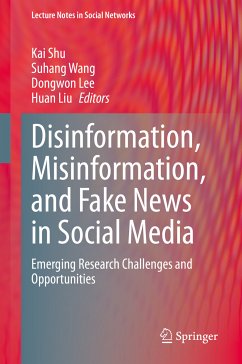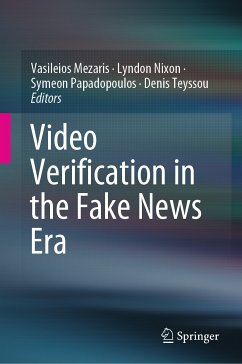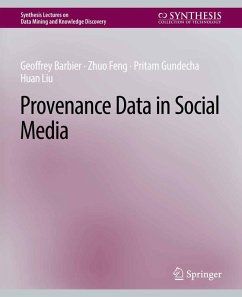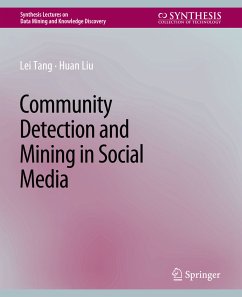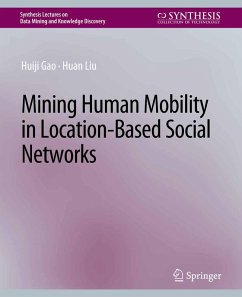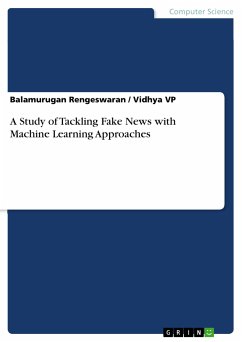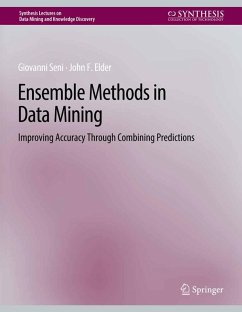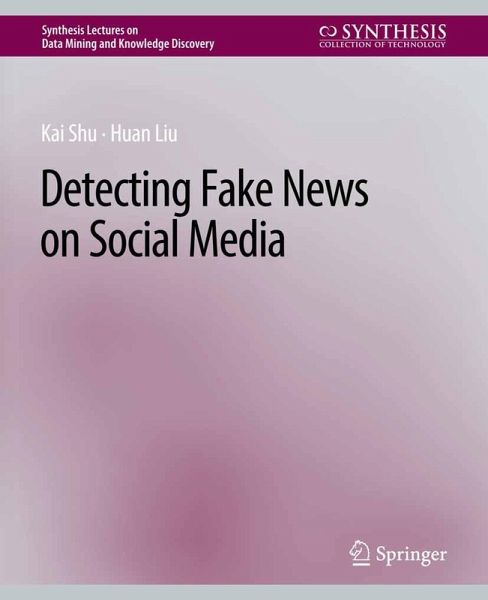
Detecting Fake News on Social Media (eBook, PDF)
Versandkostenfrei!
Sofort per Download lieferbar
Statt: 58,84 €**
44,95 €
inkl. MwSt.
**Preis der gedruckten Ausgabe (Broschiertes Buch)
Alle Infos zum eBook verschenkenWeitere Ausgaben:

PAYBACK Punkte
22 °P sammeln!
In the past decade, social media has become increasingly popular for news consumption due to its easy access, fast dissemination, and low cost. However, social media also enables the wide propagation of "fake news," i.e., news with intentionally false information. Fake news on social media can have significant negative societal effects. Therefore, fake news detection on social media has recently become an emerging research area that is attracting tremendous attention. This book, from a data mining perspective, introduces the basic concepts and characteristics of fake news across disciplines, r...
In the past decade, social media has become increasingly popular for news consumption due to its easy access, fast dissemination, and low cost. However, social media also enables the wide propagation of "fake news," i.e., news with intentionally false information. Fake news on social media can have significant negative societal effects. Therefore, fake news detection on social media has recently become an emerging research area that is attracting tremendous attention. This book, from a data mining perspective, introduces the basic concepts and characteristics of fake news across disciplines, reviews representative fake news detection methods in a principled way, and illustrates challenging issues of fake news detection on social media. In particular, we discussed the value of news content and social context, and important extensions to handle early detection, weakly-supervised detection, and explainable detection. The concepts, algorithms, and methods described in this lecture can help harness the power of social media to build effective and intelligent fake news detection systems. This book is an accessible introduction to the study of detecting fake news on social media. It is an essential reading for students, researchers, and practitioners to understand, manage, and excel in this area. This book is supported by additional materials, including lecture slides, the complete set of figures, key references, datasets, tools used in this book, and the source code of representative algorithms. The readers are encouraged to visit the book website for the latest information: http://dmml.asu.edu/dfn
Dieser Download kann aus rechtlichen Gründen nur mit Rechnungsadresse in A, B, BG, CY, CZ, D, DK, EW, E, FIN, F, GR, HR, H, IRL, I, LT, L, LR, M, NL, PL, P, R, S, SLO, SK ausgeliefert werden.



